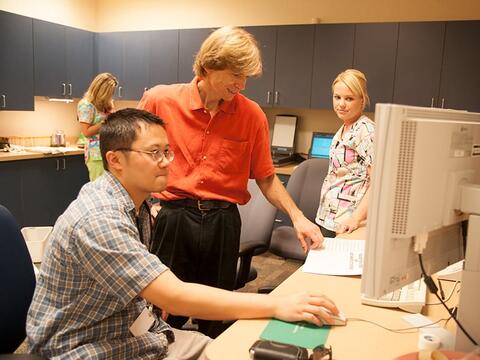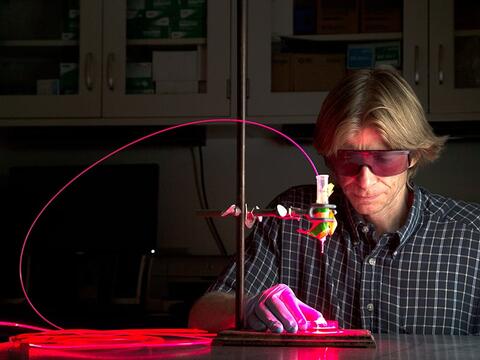

Health Physics
The mission of the health physics program is to provide a high-quality education experience for students in the fields of environmental health physics, medical physics, and radiation safety. The educational experience is accomplished through rigorous classroom instruction aided by computer and multimedia instruction, practical laboratory experiences, an introduction to the principles of research, and mentoring. Students interested in the medical physics programs can find information regarding program accreditation and the medical physics certification process.
- Minor in Health Physics program
- Bachelor of Science in Health Physics program
- Master of Science in Health Physics program
- Medical Physics Option: History and Program Statistics
- Environmental Health Physics Option: Program Data
- Master’s Admission Requirements
- Master’s Degree Requirements
- Master's Progression and Graduation Requirements
- Advanced Graduate Certificate in Medical Physics
- Advanced Graduate Certificate in Medical Physics: History and Program Statistics
- Doctor of Medical Physics
- Doctor of Philosophy Interdisciplinary Health Sciences: Medical Physics Subplan
- Doctor of Medical Physics Option: History and Program Statistics
- Doctor of Philosophy Interdisciplinary Health Sciences: Medical Physics Subplan - History and Program Statistics
Comprehensive Medical Imaging
The comprehensive medical imaging program is designed to educate students in a foundation of mathematics and the sciences applicable to the interdisciplinary and applied science of diagnostic imaging. There are three available tracks of study: computed tomography/magnetic resonance imaging, radiography, and ultrasound.
Radiography Program
The radiography program prepares students for entry-level clinical practice. Program administration, faculty, and staff provide didactic and clinical education opportunities that adhere to recognized standards.
Ultrasound Program
The UNLV Ultrasound Program prepares students for a rewarding career in the field of diagnostic medical sonography. Upon graduation, students are board eligible through the American Registry of Diagnostic Medical Sonographers to become nationally registered.
Post-Primary Education
Post-primary tracks offer the opportunity for current Radiologic Technologists to complete the structured education requirements for the American Registry of Radiologic Technologists (ARRT) in:
- Computed Tomography
- Magnetic Resonance
- Mammography
- Cardiac Interventional Radiography
- Vascular Interventional Radiography